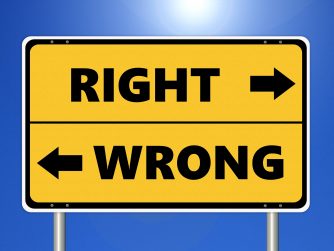 “I’m not hurting anybody else. As long as I’m not hurting someone else it shouldn’t matter what I do.” Ever heard something like that? Ever said something like that?
“I’m not hurting anybody else. As long as I’m not hurting someone else it shouldn’t matter what I do.” Ever heard something like that? Ever said something like that?
It would be nice if we lived life in a vacuum. It would be nice if how we lived didn’t affect or influence others. It sure would be nice to do whatever we wanted without any concern as to how it might impact someone else’s life.
Unfortunately, we influence those around us in ways we cannot even fathom! Here’s how.
Kenneth Burke was an American literary theorist and philosopher. The political and social power of symbols was central to Burke’s scholarship throughout his career. He felt that through understanding “what is involved when we say what people are doing and why they are doing it”, we could gain insight into the cognitive basis for our perception of the world. For Burke, the way in which we decide to narrate gives importance to specific qualities over others. He believed that this could tell us a great deal about how we see the world.
One of the central tenets of his philosophical framework was that symbols held great power. One of Burke’s definitions of rhetoric was “the use of language as a symbolic means of inducing cooperation in beings that by nature respond to symbols (emphasis mine)” (Burke, 1969, p. 43). For Burke, the essential function of symbols is to be the means by which we understand our world, and therefore understand what constitutes our reality. Burke would say, “[h]owever important to us is the tiny sliver of reality each of us has experienced firsthand, the whole overall picture is but a construct of symbol systems” (Burke, 1966, p. 5).
This is important because he defines humanity in terms of symbol. In Language as Symbolic Action, he states that “[m]an is the symbol-‐making animal, inventor of the negative, separated from his natural condition by instruments of his own making, moved by the sense of order, and rotten with perfection” (Burke, 1966, p. 3). If rhetoric is how humanity use symbols, and by definition humans make symbols, then humanity itself is an expression of rhetoric, or an influencing text. The essence of rhetoric is found in everything a person does, including the unconscious. Human action is symbolic action.
For Burke, symbolic action is the evaluation and interpretation of a situation. Accepting the evaluation and interpretation of another means that one person has been persuaded by what another person does and says. In saying this, particularly by adding the unconscious, Burke asserts that all human behavior is strategic action that works to define and influence situations and attitudes for those in one’s social network, which would also include that very same person.
For example, the symbols of rhetoric can be anything a person owns. What a person wears, the car a person drives, or the timepiece a person uses reflects the personality, character or status of a person. Or at least what that person believes they should have. Wearing a Rolex© watch puts the person in a different category than someone who wears a ten year-‐old Timex©. Driving a new BMW© creates a different impression of a person than if he or she drove a Yugo©. In this, a human becomes a living, breathing rhetorical device, even to him or herself.
Everything we own, every action we take, and every word we say that is available to others speaks volumes about who we are. And that also means we are a living influence to our social network.
Now that doesn’t necessarily mean we have to care what others think of you. You can’t please everyone. I mean, really, people can be odd, even crazy at times. But what it does mean is that we do have to be aware of how we influence others, how we move people toward or away from what we believe, or even how we help others agree or disagree with us. The clothes we wear or the car we drive has the power to influence someone else.
Be aware. Be very aware!
NOTES:
Burke, K. (1969). A grammar of motives. Berkeley: University of California Press.
Burke, K. (1966). Language as symbolic action: Essays on life, literature, and method. Berkeley: University of California Press.







